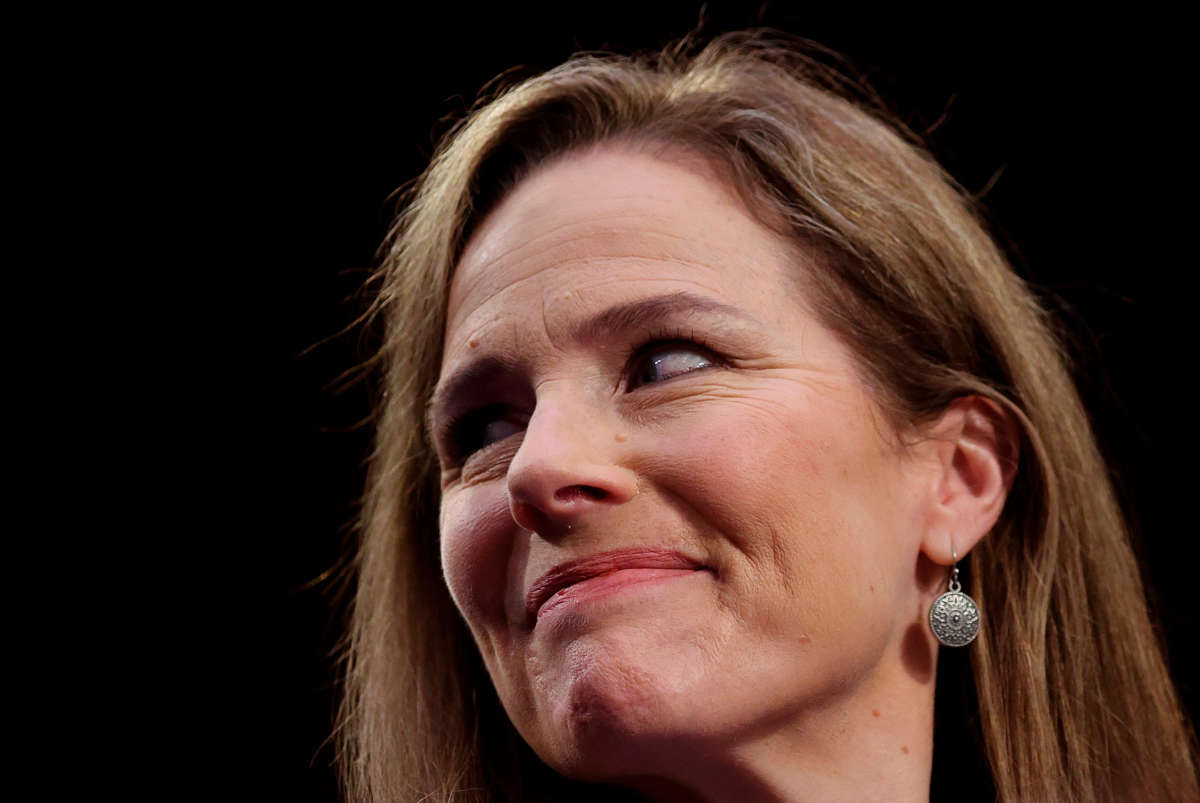During her confirmation hearings on Wednesday, President Donald Trump’s Supreme Court nominee, Judge Amy Coney Barrett, refused to give her opinion on an important question that’s come up over the past four years: whether sitting presidents have the power to pardon themselves.
The question is particularly important for Barrett to answer, as Trump has asserted in the past that he does have the right to pardon himself if he wants to do so. Trump has also used his presidential authority to grant a number of questionable pardons, especially to his friends and political allies, during his presidential tenure.
In an exchange between herself and Sen. Patrick Leahy (D-Vermont), Barrett agreed with the senator’s assertions that “no one is above the law,” including the president. But as to whether that meant the president could not use the power of pardon to avoid personal criminal prosecution while in office, Barrett would not elaborate.
“Does a president have an absolute right to pardon himself for a crime? I mean, we heard this question after President [Richard] Nixon’s impeachment,” Leahy asked, referencing the Watergate scandal of the 1970s. (Nixon was not formally impeached, although hearings on the subject had begun before his resignation in 1974.)
Barrett refused to provide an opinion on the matter.
“So far as I know, that question has never been litigated,” the Supreme Court nominee said. “That question has never arisen. That question may or may not arise, but it’s one that calls for legal analysis of what the scope of the pardon power is, so because it would be opining on an open question when I haven’t gone through the judicial process to decide it, it’s not one on which I can offer a view.”
Barrett has shied away from a number of subjects during her nomination hearings this week, including refusing to articulate her views on Roe v. Wade. She has also not answered questions on whether a president can delay an election or not, and whether voter intimidation at the polls is legal — two issues that seem to have clear-cut answers, as the Constitution allows only Congress to change election dates, and statutes against voter intimidation have been on the books for decades.
On the matter of whether presidents can pardon themselves or not, the issue is less resolved. However, with few exceptions, most legal scholars believe that a president cannot do so, as a pardon requires two separate entities — a person in need of a pardon, and another person to do the pardoning.
Indeed, a memo from the Office of Legal Counsel to Nixon said he could not pardon himself.
The abuse of the pardon power by a president is also considered by many to be an impeachable offense. A president can use a pardon with very little restraint, but if they do so in order to cover up or conceal a crime, for example, Congress can view their use of the power as obstruction of justice. Using a pardon to excuse alleged crimes a president may have committed could similarly be viewed by Congress as an action worth impeaching over.
Join us in defending the truth before it’s too late
The future of independent journalism is uncertain, and the consequences of losing it are too grave to ignore. To ensure Truthout remains safe, strong, and free, we need to raise $43,000 in the next 6 days. Every dollar raised goes directly toward the costs of producing news you can trust.
Please give what you can — because by supporting us with a tax-deductible donation, you’re not just preserving a source of news, you’re helping to safeguard what’s left of our democracy.
